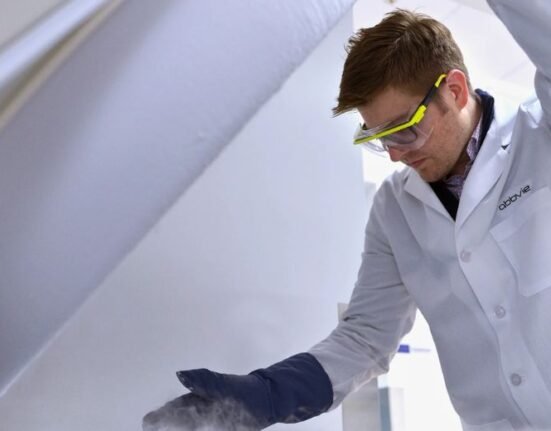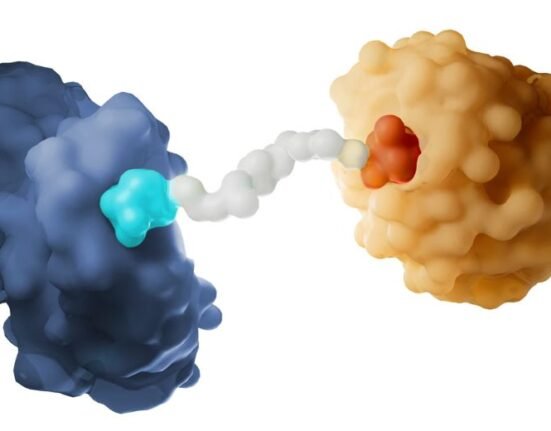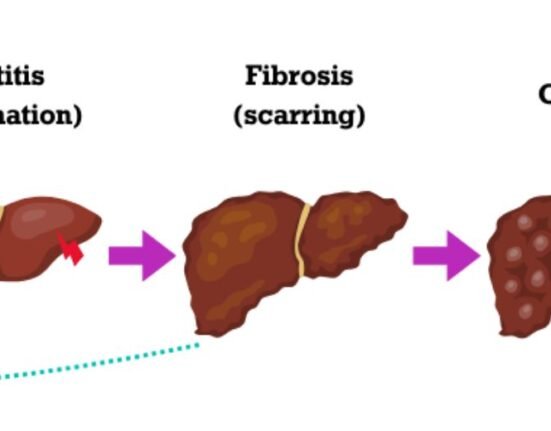HQ Team
August 17, 2023: A study on mice has produced a vaccine for Epstein-Barr virus, which is linked to a 32-fold higher risk of developing multiple sclerosis.
“The vaccine induced a strong immune against EBV that lasted seven months in mice,” and more tests are needed to know how these findings may apply to humans, the researchers said.
Researchers from the Harvard T.H. Chan School of Public Health tracked more than 10 million US military personnel over a 20-year period to arrive at their conclusion.
The vaccine candidate was developed by QIMR Berghofer and has achieved “potent and durable immune protection against EBV in pre-clinical models,” according to a statement.
The breakthrough could prevent the type of severe viral infection known to be a leading cause of several diseases including multiple sclerosis and various cancers.
Herpes family
The EBV is a member of the herpes virus family and It is carried by around 95% of the global population. Most of the humans are unaware of the virus lying dormant in their bodies. Infection usually occurs in early childhood causing very mild symptoms.
In some people, EBV can lead to severe illness. Those who catch the virus later in life as teens or young adults can develop infectious mononucleosis, or glandular fever, which is a major risk factor for a number of diseases and cancers.
A landmark study published last year established that EBV is likely the leading cause of multiple sclerosis (MS), an incurable neurological disease where the body’s own immune system mistakenly attacks the protective coating around the nerves causing debilitating symptoms.
Preventing EBV-associated infectious mononucleosis could potentially lead to the prevention of MS in the future, but despite worldwide research efforts, there is still no vaccine available.
The new QIMR Berghofer vaccine candidate potentially offers a breakthrough approach that combines two powerful arms of the immune system to target the virus in both acute and latent infection.
Phase II trials
Although further work is needed, the vaccine is potentially complementary to ATA188, a cell-based therapy that targets the root cause of multiple sclerosis and is currently in advanced Phase II clinical development by Atara Biotherapeutics.
QIMR Berghofer’s Professor Rajiv Khanna AO, who led the development of the vaccine, and is also collaborating with Atara on ATA188, said the study shows the vaccine could provide effective, long-term protection against EBV.
“Other vaccine efforts have focused on inducing neutralising antibodies against the virus which blocks infection of immune B cells during primary acute infection,” he said.
“But EBV in its latent state hides inside B cells, turning them into tiny virus factories ready to divide and spread whenever our immune defences are down. It is our killer T cells that detect and control these infected B cells.
“Our vaccine formulation induces that killer T cell immune response as well as the neutralising antibody immune response.
“We think that in susceptible individuals, EBV-infected B cells travel to the brain and cause inflammation and damage. If we can prevent this at an early stage of infection then the infected B cells can’t go on to cause the development of secondary disease like MS,” Prof Khanna said.
The research involved international collaboration with the biotechnology company Elicio Therapeutics.
Vaccine adjuvant
The company’s Amphiphile vaccine adjuvant, AMP-CpG was used to deliver the vaccine effectively into the lymph nodes where the early immune response is activated, study co-author and Elicio Therapeutics Chief Scientific Officer Dr Peter DeMuth said.
Nearly 3 million people around the world live with MS, including more than 33 thousand Australians. The disease causes symptoms including debilitating fatigue, loss of mobility, pain, and brain fog.
The virus is also associated with diseases and cancers including Hodgkin’s lymphoma and nasopharyngeal cancer. The virus can be life-threatening in immunocompromised patients such as transplant recipients.
The research was funded by biopharmaceutical company Atara Biotherapeutics, which is supporting the development, in collaboration with QIMR Berghofer, of a novel EBV-vaccine composition involving a different, clinically validated adjuvant.
The early findings have been published in the journal Nature Communications.








